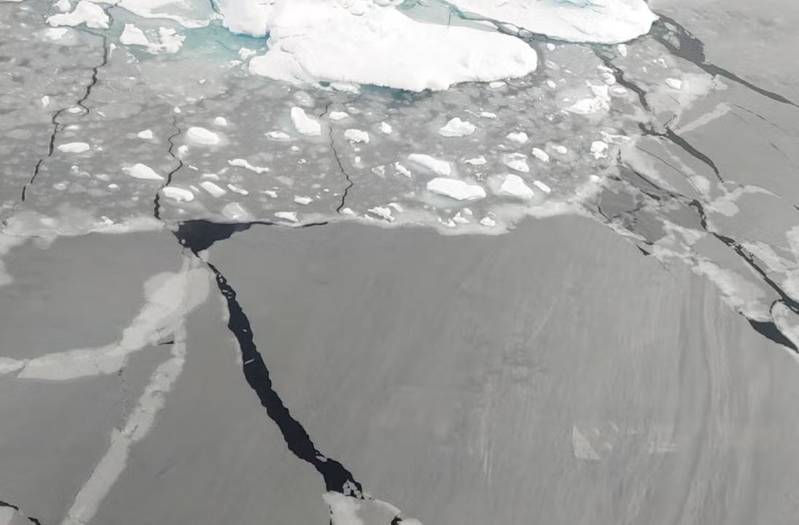The first summer on record that melts practically all of the Arctic’s sea ice, an ominous milestone for the planet, could occur as early as 2027.
That’s according to an international research team, including University of Colorado Boulder climatologist Alexandra Jahn and Céline Heuzé from the University of Gothenburg in Sweden. The team used computer models to predict when the first ice-free day could occur in the northernmost ocean.
When the Arctic Ocean has less than 1 million square kilometers of ice, scientists say the Arctic is ice free.
In September, the National Snow and Ice Data Center reported that this year’s Arctic sea ice minimum, the day with the least amount of frozen seawater in the Arctic, was one of the lowest on record since 1978.
At 1.65 million square miles, or 4.28 million square kilometers, this year’s minimum was above the all-time low observed in September 2012, but it still represents a stark decline compared to the average coverage of 6.85 million square kilometers between 1979 and 1992.
“The first ice-free day in the Arctic won’t change things dramatically,” said Jahn, associate professor in the Department of Atmospheric and Oceanic Sciences and fellow at CU Boulder’s Institute of Arctic and Alpine Research. “But it will show that we’ve fundamentally altered one of the defining characteristics of the natural environment in the Arctic Ocean, which is that it is covered by sea ice and snow year-round, through greenhouse gas emissions.”
Jahn and Heuzé projected/estimated the first ice-free Arctic day using output from over 300 computer simulations. They found that most models predicted that the first ice-free day could happen within nine to 20 years after 2023 regardless of how humans alter their greenhouse gas emissions. The earliest ice-free day in the Arctic Ocean could occur within three years.
As the climate warms from increasing greenhouse gas emissions, sea ice in the Arctic has disappeared at an unprecedented speed of more than 12% each decade.
A drastic cut in emissions could delay the timeline for an ice-free Arctic and reduce the time the ocean stays ice-free, according to the study.
Previous projections of Arctic sea ice change have focused on predicting when the ocean will become ice free for a full month. Jahn’s prior research suggested that the first ice-free month would occur almost inevitably and might happen by the 2030s.
The findings were published in the journal Nature Communications.

